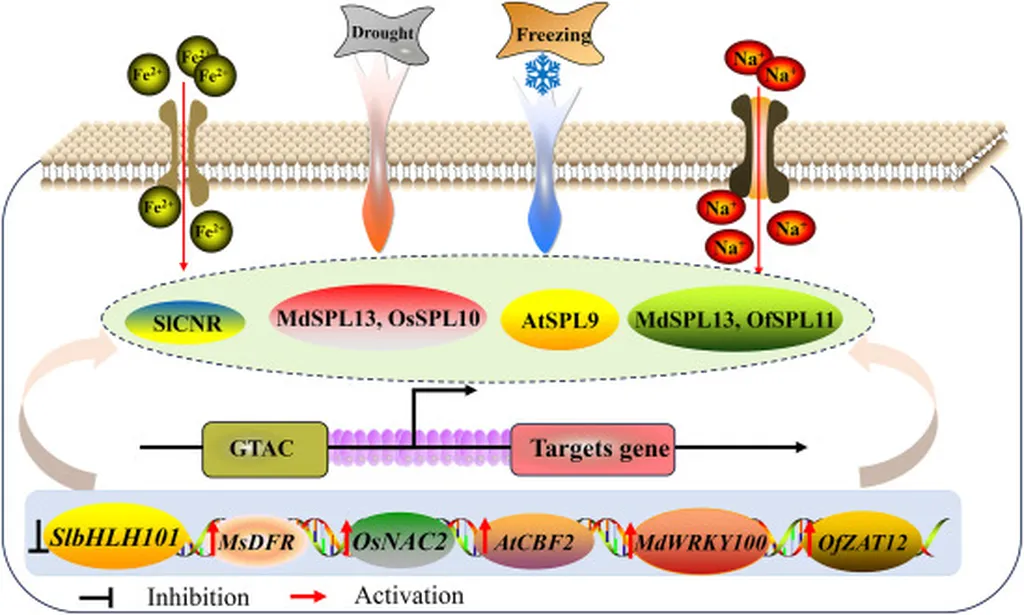In the ever-evolving world of plant science, a recent review published in *Frontiers in Plant Science* has shed light on the multifaceted roles of SQUAMOSA Promoter-Binding Protein-Like (SPL) transcription factors in leaf development and beyond. Led by Faujiah Nurhasanah Ritonga of the Shandong Key Laboratory of Bulk Open-field Vegetable Breeding, the research delves into how these plant-specific regulatory proteins orchestrate a symphony of growth and developmental processes, from leaf morphogenesis to stress responses.
SPL transcription factors, characterized by their conserved SBP DNA-binding domain, are pivotal in coordinating the transition from juvenile to adult phases, branching, flowering time, and organ morphogenesis. “SPLs are like the conductors of an orchestra,” explains Ritonga, “they integrate various signals to ensure that plants grow and develop in harmony with their environment.” This regulatory prowess is tightly controlled by the miR156/157 pathway, forming a critical module that responds to both intrinsic and environmental cues.
The review highlights that SPLs are not just developmental regulators but also key players in plant stress responses. They contribute to resilience against abiotic stresses such as drought, salinity, nutrient deficiency, and temperature extremes, as well as biotic stresses like pathogen attacks. This dual role makes SPLs a focal point for enhancing crop productivity and sustainability.
Functional genomics studies across diverse species, including Arabidopsis, rice, maize, and forest trees, have revealed both conserved and species-specific roles of SPLs. This diversity underscores their importance as regulatory hubs in plant adaptation and productivity. “Understanding the nuances of SPL function across different species is crucial for tailoring crop improvement strategies,” notes Ritonga.
The commercial implications of this research are profound. By leveraging SPL research, agritech companies and breeders can optimize plant architecture, enhance stress tolerance, and ultimately improve crop yields. Gene editing, molecular breeding, and biotechnological innovations hold promise for developing crops that are not only more productive but also more resilient to the challenges posed by climate change.
Looking ahead, the applications of SPL research could revolutionize sustainable agriculture and forestry. As Ritonga envisions, “The future lies in precision breeding and genetic engineering, where we can fine-tune SPL activity to meet specific agricultural needs.” This could lead to the development of crops that require less water, are more resistant to pests and diseases, and can thrive in adverse conditions.
In conclusion, the review by Ritonga and colleagues underscores the pivotal role of SPL transcription factors in plant development and stress responses. Their findings pave the way for innovative approaches to crop improvement, offering a beacon of hope for a more sustainable and productive future in agriculture. As the global population continues to grow, the insights gained from this research could be instrumental in ensuring food security and environmental sustainability.

